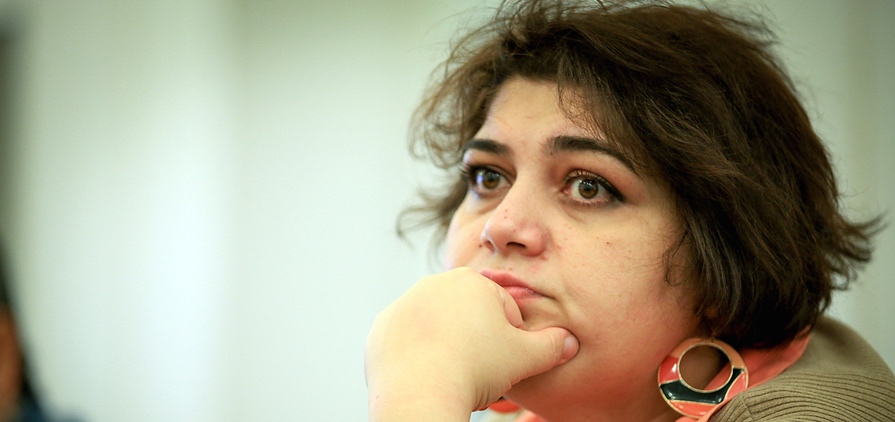
The European Court of Human Rights has started communication with the Azerbaijani authorities on the two complaints filed by the imprisoned investigative journalist Khadija Ismayil over violation of her rights to privacy, freedom of expression and fair trial, the journalist’s lawyer Fariz Namazli has said. According to the lawyer, the communication was opened on December 17, 2015.
“When a private video filmed by a secret camera planted in Khadija Ismayil’s apartment was posted on the internet on March 14, 2012, the Yeni Azerbaycan, Iki Sahil and Ses newspapers published a number of articles calling her immoral. On March 15, 2012, Baku City Prosecutor’s Office launched a criminal case under article 156 (violation of privacy) of the Criminal Code, but this yielded no results, because the proceedings were suspended. On April 26, 2012, the Prosecutor General’s Office and Baku City Prosecutor’s Office issued a statement on the investigation of the criminal case, which also contained information on the private life of Khadija Ismayil. Khadija Ismayil filed a complaint with the court over the ineffectiveness of the investigation of the criminal case, as well as the publication of information on her private life in the above statement. Having exhausted domestic remedies, she applied to the European Court on September 26, 2013 and 31 July 2014. Her case is based on the violation of European Human Rights Convention’s articles 8 (right to respect for private life), 10 (freedom of expression), 6 (right to fair trial) and 13 (right to an effective remedy),” Namazli said.
The European Court has submitted questions to the government of Azerbaijan on whether Khadija Ismayil’s rights have been violated.
Yalchin Imanov, another of the journalist’s lawyers, said that they would apply to the prosecutor’s office in the coming days to renew proceedings on the criminal case related to the camera planted in Ismayil’s apartment.
“The investigation of the criminal case launched under article 156 (violation of privacy) of the Criminal Code was suspended a long time ago. We will apply for the renewal of proceedings due to the new circumstances that have emerged after the recent events with the Ministry of National Security, i.e. dismissal of the Minister and prosecution of some ministry employees,” said the lawyer.
The secretly filmed video was posted on youtube.com and Google video portals on March 14, 2012 after the journalist refused to stop work on her high-profile investigations of government corruption, despite the blackmail letter she received on March 7, 2012, which contained stills from the videos, offensive expressions, and demanded that she cease her investigatory work.

